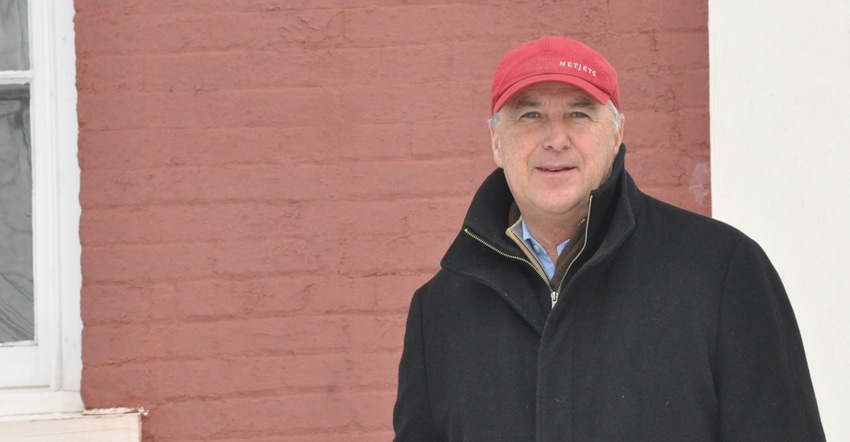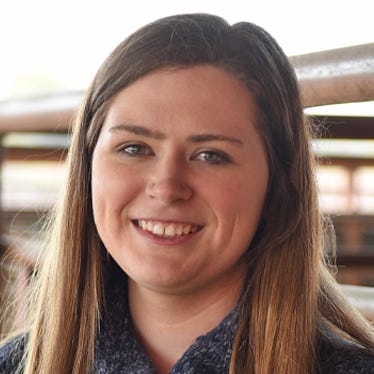
When the local grocery store closed in 2016, Mount Pulaski, Ill., residents had to travel 12 miles to do their grocery shopping. At least until 2020, when a new grocery store was opened as a result of an Environmental Protection Agency grant.
It was the fall of 2018 when the Mount Pulaski community received a Local Food/Local Places grant through the EPA. But this wasn’t a monetary grant. Instead, the EPA connected the community with experts from Washington, D.C., and across the Midwest in August 2019 to guide discussion about how to make local foods more of an economic driver for Mount Pulaski and beyond.
So, what came from this guided discussion?
“One of the goals was opening Market on the Hill, the community grocery store, because we had lost our grocery store,” says Tom Martin, a Mount Pulaski farmer, community organizer and 2018 Master Farmer. “So, we were able to put that together and open the Market on the Hill in June of 2020.”
Approximately 2,500 square feet, Market on the Hill offers a wide selection — local meat, dairy products, canned goods and fresh produce. Plus, there’s an in-store deli and coffee.
But Martin says their food goals were twofold: provide a community grocery store and start a food entrepreneur incubator. That’s where FarmFed comes in.
The Central Illinois FarmFed Cooperative in Mount Pulaski has the mission to help entrepreneurs develop and prepare food products, and to provide a year-round farmers market for other producers. Think of the co-op as the connection between producers and consumers.
Martin, who serves as FarmFed Cooperative president, says the organization partners with local producers (and hopefully new producers) whose fresh produce market is limited and seasonal. FarmFed creates a year-round market.
“We will be that liaison where producers can come in and we can process their fresh foods; then we are going to be the marketing end of the business, too,” he says. “We go out and find the end user — the consumer — and those consumers for us right now are not individuals, but they’re businesses like hospitals, nursing homes, schools and the prison system in the state of Illinois.”
The idea stems from the increase in demand for local produce — fresh or frozen, Martin says.
“We see the need to come in and provide the necessary capital and infrastructure that most individual producers can’t do to expand and grow their markets,” he adds.
In addition, FarmFed organizers have created a community kitchen where entrepreneurs can develop their ideas and make their products to be sold to the public.
“We saw the need to create that kitchen and bring multiple people in, rent the kitchen to them, and let them produce their product so they can then go out and sell it,” Martin explains.
Making progress
FarmFed’s plans are grand and still under way. In July 2021, the FarmFed board launched a campaign to sell shares in the cooperative to raise $100,000, Martin says. And by Sept. 15, the cooperative had exceeded the sale goal, selling $145,000 in stock to nearly 240 individuals in 14 states.
And recently the cooperative was awarded a $185,000 Local Food Promotion Program grant managed by the USDA Agricultural Marketing Service.
“This grant has enabled us to hire a consultant to come in to help us reach out to both our end users and our producers,” Martin says. “This will help set up the template for how we’re going to move forward and who we’re going to be.”
They’re also continuing to flesh out their organization, hiring a general manager and electing a nine-member board of directors.
Martin can see opening day in the near future — the light at the end of the tunnel.
“We bought a building on an empty lot, and it’s there, ready for us to move forward, which will probably take three to four more months,” Martin says. He hopes to have plans finalized by spring 2022 and the kitchen built in late summer. The processing facility will be up and running in 2023.
But Martin says this time is ideal to sign up producers, get a solid plan in place, and be ready to kick it off by the 2023 growing season.
Get involved
Moved by the purpose of FarmFed and want to be a part of it? Martin says there’s opportunity for people to help the co-op continue to progress. He’s particularly addressing young farmers.
“We have a lot of young producers who want to just raise sheep or cattle or hogs or fresh produce, and they’re maybe just 5- or 10-acre farms,” he says. “We want them to be part of this. We encompass central Illinois, not just Mount Pulaski, so we want to encourage and help young entrepreneurs get up and started. If we can help educate them and help partner with them — that’s what we want to do.”
And they need to hear what consumers want.
“The other part of the puzzle is our end users — hospitals, nursing homes and businesses that have cafeterias,” Martin says. “We need them to reach out to us and let us know that they would like to work with us to help develop products that they can serve in their facilities.”
In the end, the co-op is about connecting the two sides: producers and consumers, he explains.
“We need to lock arms and all work together on this to make it happen,” he says.
About the Author(s)
You May Also Like






